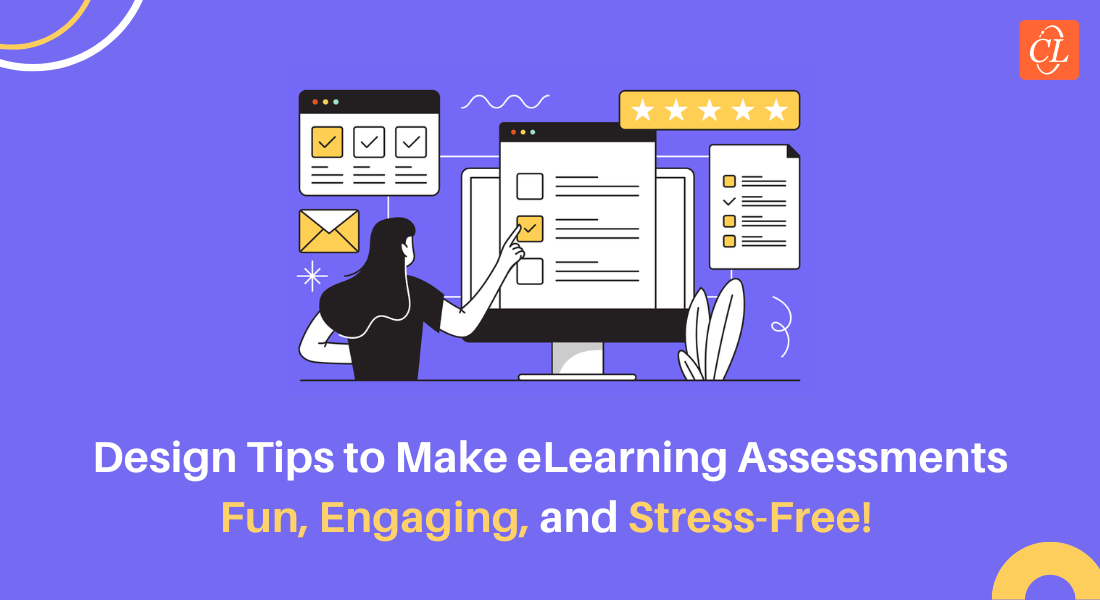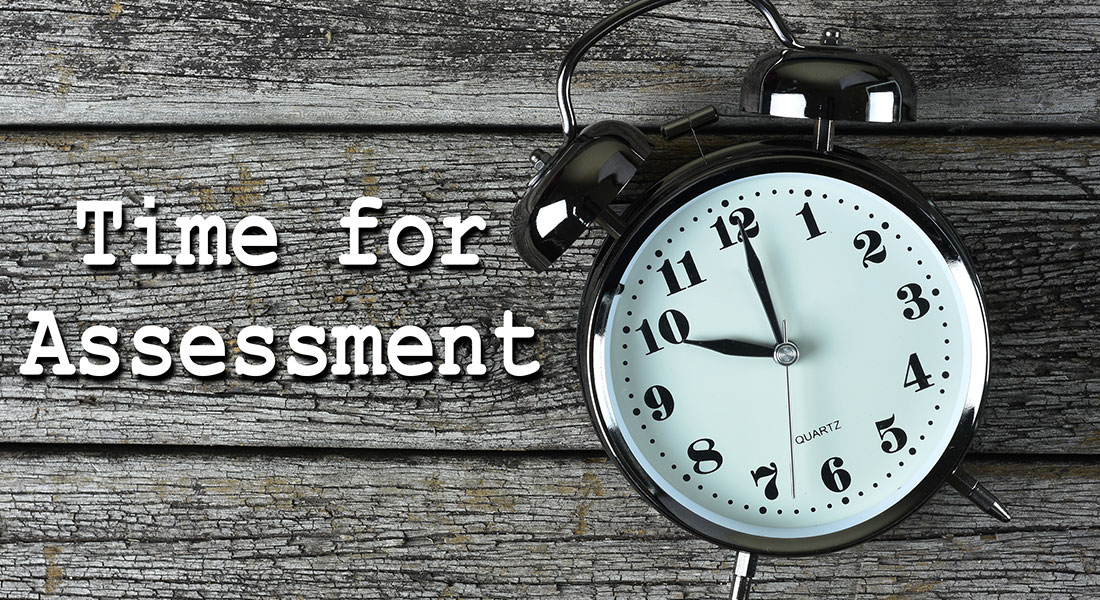5 Smart Ways to Make eLearning Assessments Fun

Increased employee efficiency and better growth in the overall business is the end goal of any training program conducted by a business. So, it is imperative for businesses to assess the effectiveness of their training program by assessing employees’ learning. If your organization is into eLearning, don’t see assessment as just an obligation.
Before we jump on the 5 ways of assessing employees in eLearning let us first briefly understand the importance of assessment.
Assessments Help Understand the Progress of the Learner
Here are 5 ways to make your eLearning assessments fun:
- Introduce Scenario-Based Assessment
- Create A Pre-Learning Quiz
- Add Varieties to Mid-Course Quizzes
- Assess Through Case Studies
- Carrying Out a Feedback Survey
Why is it important to Assess Employees in eLearning?
Assessing employees’ learning is as important as giving them training. Ultimately you need your employees to utilize their learnings practically in the work they do and thus become an active part of your business’s overall growth.
Providing training or creating an eLearning platform for employees is not merely an obligation for any serious business. Unless the training or learning enhances employees’ performance at work, it is useless.
Assessment of employees’ learning ensures that you clearly know how effectively the training is working to boost your employees’ productivity. Without an assessment you’ll neither understand the effectiveness of your training module nor will you be able to identify the fast learners and slow learners in your team. Knowing each employee’s strengths and weaknesses help you divide the responsibilities more effectively.
The 5 Great Ways to Assess Employees in eLearning
Having discussed the importance of assessment, now we can proceed toward the ways of assessment. So, let us walk you through the 5 effective ways to assess your employees’ learning out of an eLearning program conducted by you.
Introduce Scenario-Based Assessment
We already discussed the importance of utilizing one’s learned skills and knowledge for practical purposes. Your eLearning or training kit must have scenario-based assessment questions for the learners. If you need true and reliable assessment results you cannot skip this part. Scenario-based assessment tests can be designed in a myriad of ways. It can be utilized to test the employees’ skills, understanding of real-life situations, and problem-solving tactics. While introducing scenario-based assessment in your learning module do not forget to put scenarios where teamwork is required. At the end of the day, your employees need to work as a team to take your organization to greater heights.
Scenario-based learning and assessment help employees learn and retain better; here’s how.
Create A Pre-Learning Quiz
If you want to really asses the grasping and learning power of your employees, do not rely on in-between and post-course quizzes. Giving a pre-learning quiz will be helpful for you and your employees both. A pre-learning quiz will put your employees into the learning mind frame before the advent of the course. It will give them a peek into the curriculum of the course and ignite the required spark of curiosity. As an organizer of the eLearning program, you will get an insight into the current level of knowledge of each of your employees participating in the training. This will provide you with a benchmark against which the learning of each employee can be compared.
Add Varieties to Mid-Course Quizzes
Typical assessment questions between the eLearning modules consist of true/false type questions. The true/false type questions have a 50-50 chance of getting correct answers even when the assessee goes for a hit-and-trial method. So, if you want a true assessment you cannot simply rely on this type of quiz. Adding varieties to the type of assessment quiz such as fill-in-the-blanks, true/false, or multiple choice quizzes, gives you a fair understanding of the level of employees’ understanding. At the same time, it also makes the assessment process fun for the learners.
Assess Through Case Studies
You need your employees to employ their learned information practically for the growth and development of your organization. So, it is important to check their ability to utilize the knowledge gained through the eLearning module in real-life situations. And, the best way to do this is to give them case studies to solve. You can pick any real incident from your business and narrate the incident from a problem point of view and ask the employees to suggest a practical solution for the given scenario. This practice will function like a bridge between theories and practicals for your employees and help you see which employee is actually grabbing the concept and not just doing rote learning.
Assign Learners a Business Game
This is yet another clever way to let your employees put theory into practice. The type of assessment is similar to scenario-based learning. It involves putting the employees in a business scenario and using gamification to get the employees to play to reach a given target. This way, you can access their theoretical knowledge while also keeping them engaged.
Final Words
Assessing your employees helps them retain the learning and apply it whenever needed. After all, at the core, eLearning assessments aim at enhancing the performance and productivity of your employees and catalyzing your business growth.
However, designing and developing eLearning assessments can be challenging. Time constraints and the uncertainty about what and how to incorporate assessments can draw you into the hesitance gap. Found yourself in the gap? This Webinar Recording will help you. Hosted by Howard B. Lewis, Ph.D., and CPT, and Founder & Chief Learning Architect at for Integrated Performance Solutions, Inc. (IPS), the Webinar highlights a practical, easy-to-implement approach to eLearning assessments.





